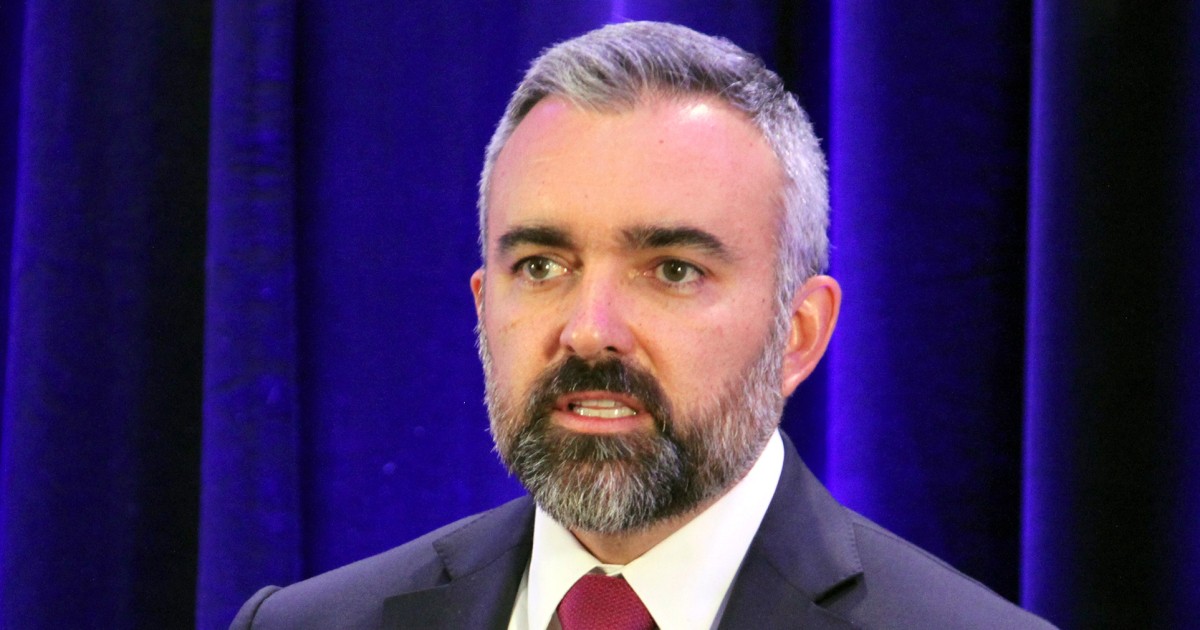
ALBUQUERQUE, N.M. — New Mexico’s top prosecutor said Friday that the state’s five Republican electors cannot be prosecuted under the current law for filing election certificates that falsely declared Donald Trump the winner of the 2020 presidential race.
However, Democratic Attorney General Raúl Torrez is making recommendations to state lawmakers that he says would enhance the security of the state’s electoral process and provide legal authority for prosecuting similar conduct in the future.
New Mexico is one of several states where Republican electors attempted to cast ballots indicating that Trump had won, a strategy at the center of criminal charges against Trump and his associates. Democratic officials launched separate investigations in some states, resulting in indictments against GOP electors.
Fake certificates were submitted in the battleground states of Arizona, Georgia, Michigan, Nevada, Pennsylvania and Wisconsin.
In New Mexico and Pennsylvania, fake electors added a caveat saying the certificate was submitted in case they were later recognized as duly elected, qualified electors. That would only have been possible if Trump had won any of several dozen legal battles he waged against states in the weeks after the election.
Republican Party of New Mexico Chairman Steve Pearce said Friday that the state faced numerous election challenges that had the possibility of going before a court. Therefore, he said the GOP electors cast their votes by the deadline written within federal statute in the event the election outcome changed.
“AG Torrez agrees that the Republican electors did not violate the law, but now he wants to criminalize the process used by both Democrats and Republicans,” Pearce said, referring to the 1960 presidential election in which Democrat electors in Hawaii cast votes for John F. Kennedy despite that state initially being called for Republican Richard Nixon.
In 2020, President Joe Biden won the vote in New Mexico by roughly 11 percentage points — the largest margin among the states where so-called fake electors have been implicated.
In December, a Nevada grand jury indicted six Republicans with felony charges of offering a false instrument for filing and uttering a forged instrument, in connection with false election certificates. They have pleaded not guilt.
Michigan’s Attorney General filed felony charges in July 2023 against 16 Republican fake electors, who would face eight criminal charges including forgery and conspiracy to commit election forgery, though one had charges dropped after reaching a cooperation deal. The top charge carried a maximum penalty of 14 years in prison.
Three fake electors also have been charged in Georgia alongside Trump and others in a sweeping indictment accusing them of participating in a wide-ranging scheme to illegally overturn the results of the presidential election. They have pleaded not guilty.
Among those accused in a Fulton County indictment is Santa Fe attorney and former law professor John Eastman.
In January 2022, then-New Mexico Attorney General Hector Balderas, a Democrat, had referred the false certificates to federal authorities for investigation. When Torrez took office in 2023, he ordered a state investigation to determine if the electors had committed any crimes.
Torrez’s office said investigators reviewed thousands of pages of documents relating to activities in New Mexico and in the other battleground states. They also interviewed the five GOP electors.
New Mexico prosecutors contend that Trump’s team provided instructions for completing and submitting the documents. Unlike the certification documents the campaign sent to other states, those used in New Mexico were hinged on Trump winning his challenges.
While saying it was disgraceful that New Mexicans were enlisted in a plot to “undermine democracy,” Torrez acknowledged that the conduct by GOP electors in New Mexico was not subject to criminal prosecution.
He’s asking Democratic Gov. Michelle Lujan Grisham and the Democratic-controlled Legislature to amend state election code to give prosecutors more latitude to pursue charges in these types of cases in the future.
Torrez’s recommendations include expanding the prohibition against falsified election documents to include certificates related to presidential electors and creating a new law against falsely acting as a presidential elector.
Pearce suggested that pursuing such changes would amount to “unproductive stunts” that divert from addressing crime, poverty and other priorities in New Mexico.